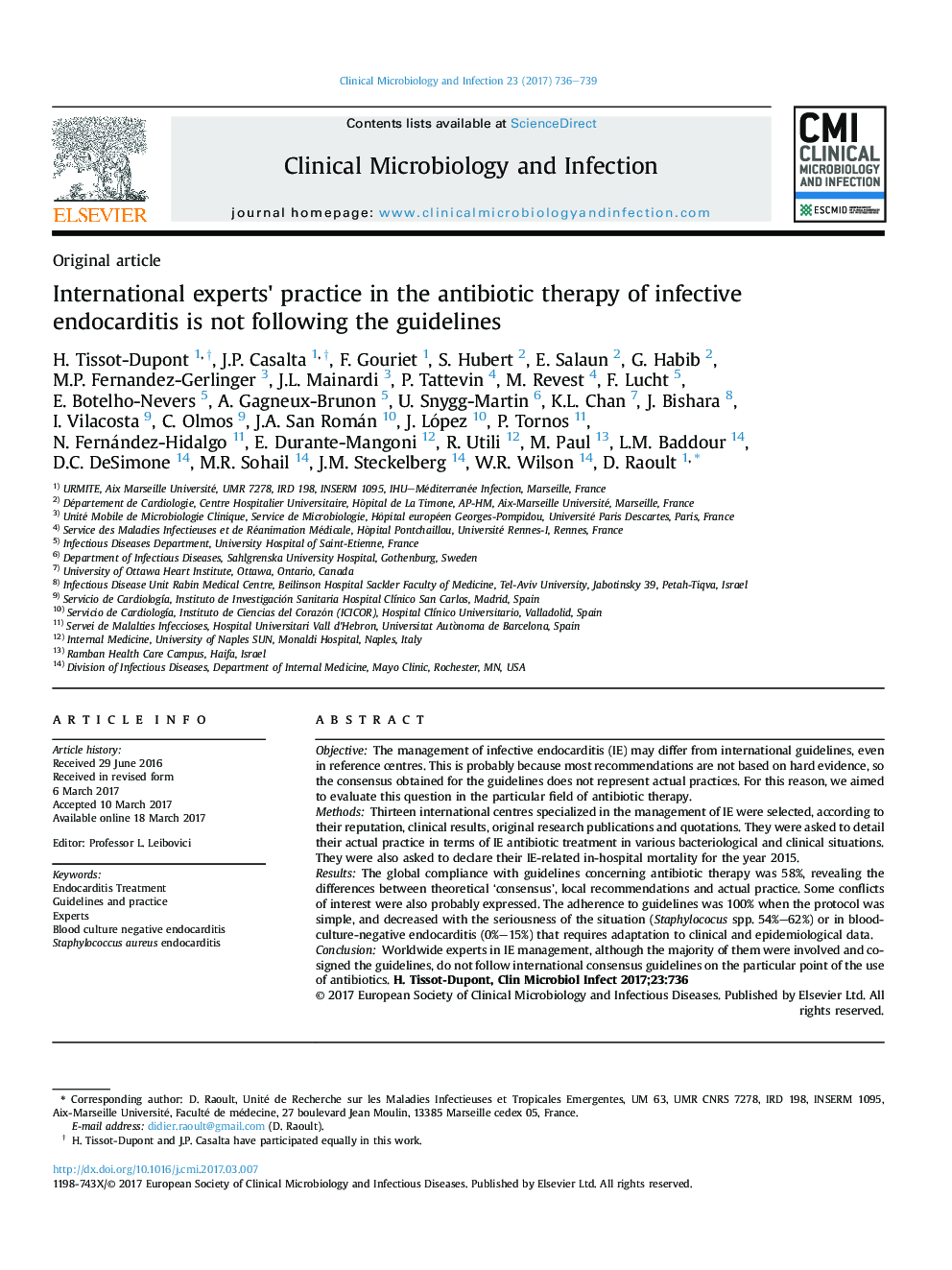| Article ID | Journal | Published Year | Pages | File Type |
|---|---|---|---|---|
| 5671584 | Clinical Microbiology and Infection | 2017 | 4 Pages |
ObjectiveThe management of infective endocarditis (IE) may differ from international guidelines, even in reference centres. This is probably because most recommendations are not based on hard evidence, so the consensus obtained for the guidelines does not represent actual practices. For this reason, we aimed to evaluate this question in the particular field of antibiotic therapy.MethodsThirteen international centres specialized in the management of IE were selected, according to their reputation, clinical results, original research publications and quotations. They were asked to detail their actual practice in terms of IE antibiotic treatment in various bacteriological and clinical situations. They were also asked to declare their IE-related in-hospital mortality for the year 2015.ResultsThe global compliance with guidelines concerning antibiotic therapy was 58%, revealing the differences between theoretical 'consensus', local recommendations and actual practice. Some conflicts of interest were also probably expressed. The adherence to guidelines was 100% when the protocol was simple, and decreased with the seriousness of the situation (Staphylococus spp. 54%-62%) or in blood-culture-negative endocarditis (0%-15%) that requires adaptation to clinical and epidemiological data.ConclusionWorldwide experts in IE management, although the majority of them were involved and co-signed the guidelines, do not follow international consensus guidelines on the particular point of the use of antibiotics.
